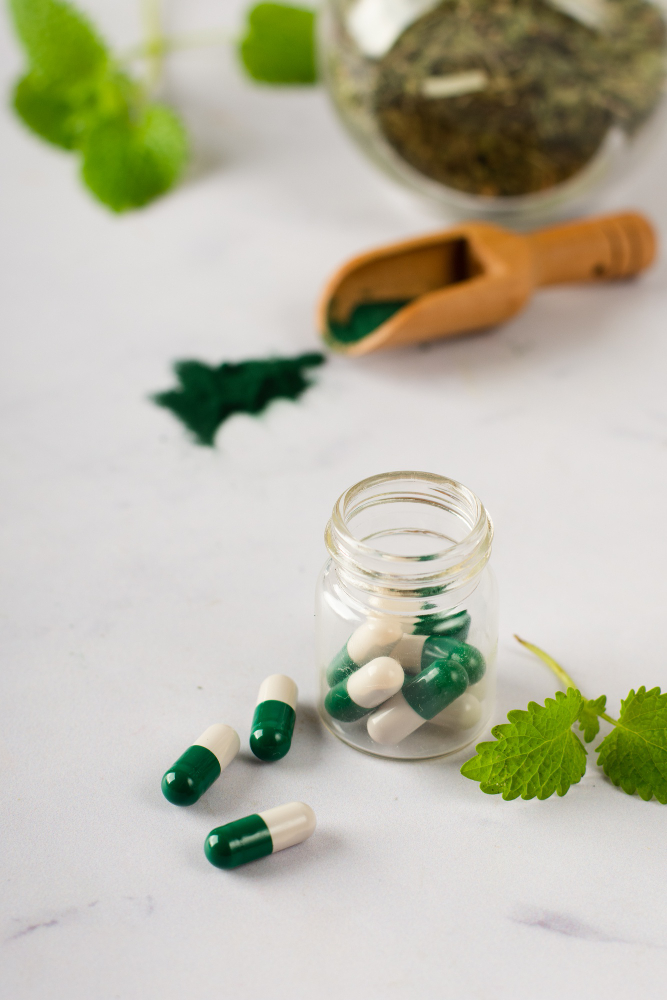Herbal supplements have surged in popularity as people seek natural alternatives to traditional medications. While these botanical remedies can offer various health benefits, it’s crucial to approach them with knowledge and caution. Unlike medicinal drugs, herbal remedies are not subject to the same rigorous testing and regulations, making it essential to understand their potential risks and benefits before incorporating them into your health regimen.
This guide will help you understand more about herbal aids and supplements to make informed decisions about herbal supplements, ensuring you reap their benefits while minimizing potential risks. Let’s see the essential considerations before you start taking herbal supplements.
Not All Herbs Are Created Equal: Quality Matters
The quality of herbal supplements can vary significantly depending on the manufacturer, sourcing, and processing methods. Some products may contain contaminants or lower concentrations of active ingredients, while others may be of superior quality and purity. So, let’s see what you must do to ensure you get the right supplements and herbal aids.
- Choose brands that are transparent about their sourcing and manufacturing processes. Look for certifications like “Good Manufacturing Practices” (GMP) or “Certified Organic.”
- Pay attention to the list of ingredients and avoid products with fillers, artificial colors, or flavors.
- Whenever possible, choose supplements that are sourced from sustainable and ethical sources.
Dosage and Interactions: Proceed with Caution
Herbal supplements are not always benign, and taking them in excessive amounts or combining them with certain medications can lead to adverse effects.
- Before taking an herbal supplement, especially if you are taking medications or suffer from a medical condition, talk to your doctor. They can help you with the appropriate dosage and identify potential interactions.
- You should always start with a lower dose of a herbal supplement and gradually increase it if needed. This allows your body to adjust and diminishes the risk of side effects.
- Some herbs can interact with medications, so you must inform your healthcare provider about all your supplements.
Herbal Supplements and Medications: A Complex Relationship
While some herbal supplements can be safely combined with medications, others can interfere with their effectiveness or cause adverse reactions. You must be aware of the potential interactions and discuss them with your healthcare provider.
- Blood-thinning herbs: Herbs like ginkgo biloba, garlic, and ginger can have blood-thinning effects and may interact with anticoagulant medications.
- Liver-toxic herbs: Certain herbs, such as kava and comfrey, can potentially damage the liver, especially if you use high doses or take them for extended periods.
- Herbs affecting blood sugar: Some herbs, like ginseng and cinnamon, can affect blood sugar levels and may interact with diabetes medications.
Research and Evidence: Separating Fact from Fiction
The effectiveness of herbal aids and remedies varies extensively; not all claims are backed by scientific evidence. It’s essential to be a discerning consumer and rely on reliable sources of information. For example, if you’re considering kratom capsules, it’s crucial to research thoroughly, find only certified sources and vendors, consult with a healthcare professional, and use it with caution.
Here are other things you could do to ensure you take your plant-based remedies safely:
- Seek information from reputable sources, such as clinical trials, peer-reviewed scientific journals, or well-respected health organizations.
- Personal testimonials can be helpful, but they shouldn’t be your decision’s sole basis. Look for scientific evidence to support the claims made about a particular herb.
- If you’re unsure about a particular herbal supplement’s effectiveness or safety, consult a medical doctor or a qualified herbalist.
Special Considerations: Pregnancy, Breastfeeding, and Children
Pregnant and breastfeeding women should be careful about using herbal supplements, as some herbs may not be safe. Similarly, children should only take herbal aids under the guidance of a healthcare professional.
- Always talk to your doctor before taking any herbal supplements if you’re pregnant, breastfeeding, or considering giving them to a child.
- Due to potential risks, certain herbs, such as black cohosh and goldenseal, are not recommended during pregnancy or breastfeeding.
- If you’re looking for herbal remedies during pregnancy or breastfeeding, opt for gentle and well-researched options like ginger for nausea or chamomile for relaxation.
Empower Yourself with Knowledge Before Taking Herbal Supplements
Herbal aids and remedies can be a wonderful addition to your diet and health regimen, but you must approach them with knowledge and caution. By understanding the potential risks and benefits, choosing high-quality products, and consulting with healthcare professionals, you can make informed decisions and reap the rewards of natural healing. Remember, herbal supplements are not a replacement for conventional medicine but a complementary approach to achieving optimal health and well-being.

